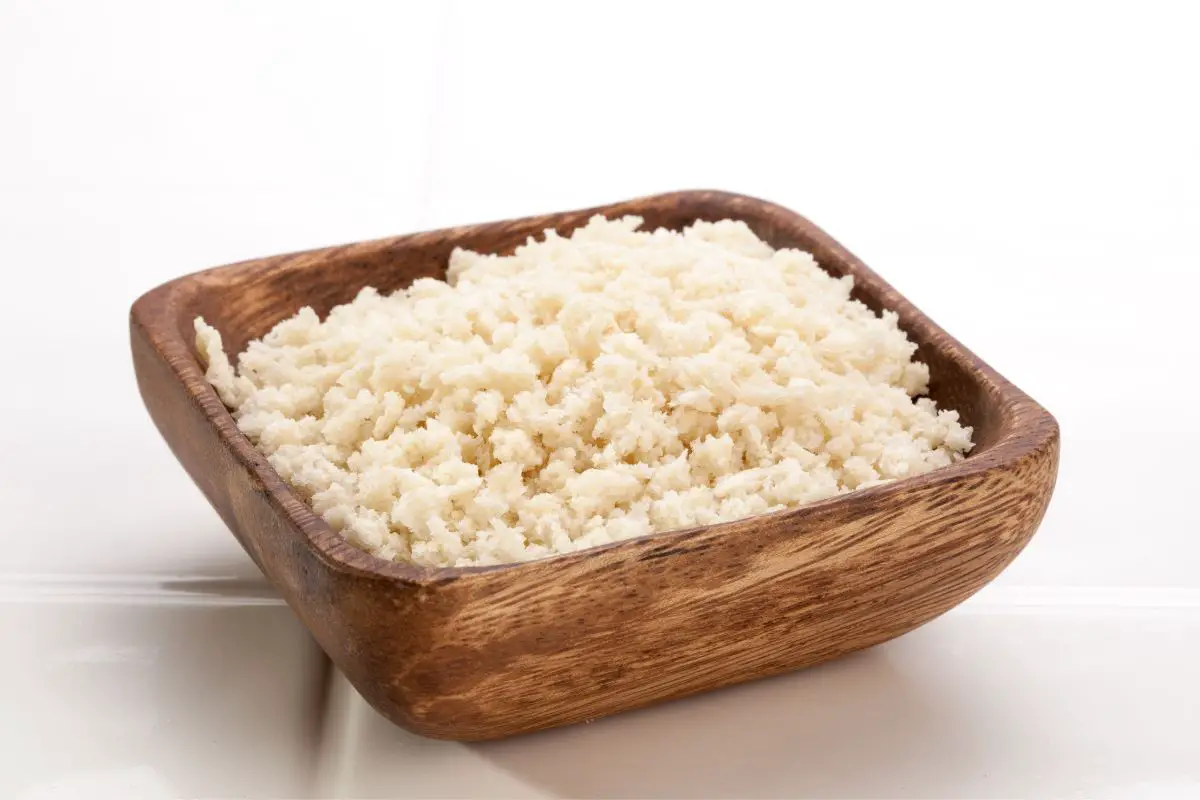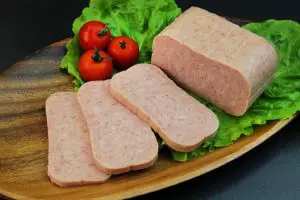People on keto diets often find themselves asking what they can- or can’t- eat whilst on keto. It’s understandable, really.
A huge number of the foods that most people take for granted, like potatoes, pasta, bread, and rice, are off the menu for followers of the keto diet, which aims to restrict carb intake as much as possible.
If you’re following a keto diet, you have to get pretty forensic with each and every food you consume to make sure they are keto-friendly, i.e. low in carbohydrates.
This even extends to things like panko breadcrumbs, which we’ll be looking at in this article.
So, are panko breadcrumbs keto-friendly? You’ve come to the right place for the answer. First of all, we’ll find out what panko breadcrumbs are.
What Is Panko?
Panko is a type of breadcrumb from Japan. It is traditionally made from crustless white bread.
The bread is broken down into large flakes which are then dried out to make panko breadcrumbs. The result is a type of breadcrumb that is quite different from typical breadcrumbs.
Where typical breadcrumb is made up of relatively small granules, panko is much coarser and flakier, consisting of much larger flakes of bread.
As a result, panko is renowned for its especially crunchy texture more than anything else- it doesn’t have much of a taste.
Panko is used for coating before deep frying, coating before baking, and as a binding agent for homemade burgers and meatballs.
Panko is also typically considered to be a much healthier alternative to most types of breadcrumbs.
Although the flakes are much larger than usual, they are lighter than in typical breadcrumbs and therefore absorb- and hold- a lot less oil.
This not only means that panko breadcrumbs are healthier than most, but it also helps to give panko its distinctive crispiness.
Followers of keto diets might be lulled into thinking panko breadcrumbs are keto-friendly because of their reputation as healthier than most types of breadcrumbs. But, are they really keto-friendly?
Are Panko Breadcrumbs Keto Friendly?
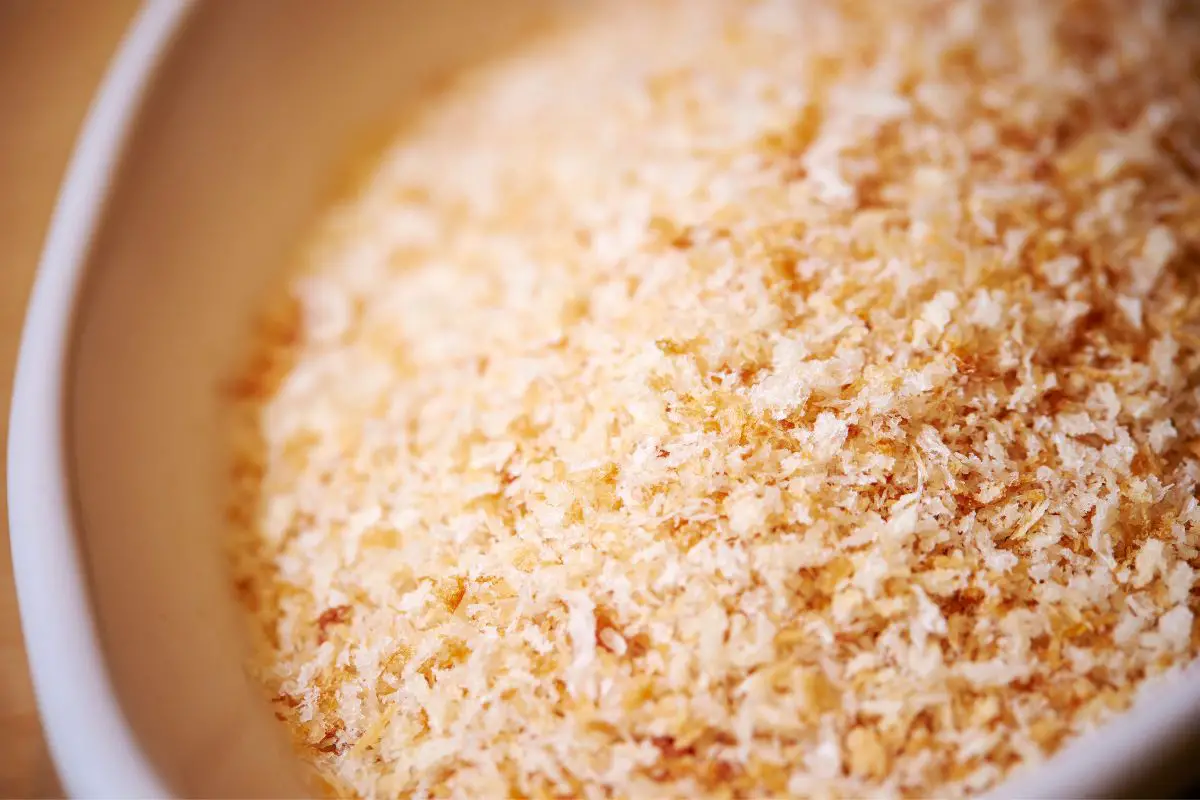
Any hardened veteran of the keto diet has probably already come to the correct conclusion- Panko is not keto-friendly.
The clue is in the name. Although different from many types of breadcrumbs, and often considered a healthier alternative, panko breadcrumbs are still made from bread, and white bread at that, which is extremely high in carbs and sugars.
Too Many Carbohydrates
A cup of traditional, grain-based breadcrumbs contains about 78 grams worth of carbohydrates as well as 14 grams of protein and 6 grams of fat.
A cup of panko breadcrumbs does contain fewer carbohydrates, that is true, with about 56 grams of net carbs per cup, along with 12 grams of protein and 2 grams of fat.
But panko breadcrumbs are still shockingly high in net carbs, with up to 65.93 grams per 100-gram serving.
This is far, far too high to ensure that the body stays in ketosis. In order to do this, you need to make sure you consume no more than 20 or 30 grams of net carbs per day- even a small portion of panko breadcrumbs will take you over that threshold.
Too Much Sugar
An oft-forgotten aspect of following a keto diet is to limit your sugar intake.
Too much sugar in your diet can raise your blood sugar level, and this can prevent you from reaching a state of ketosis, too.
Panko breadcrumbs aren’t absolutely loaded with sugar, but they do contain about 3 grams worth per 100-gram serving.
It’s not much, but it all adds up. Looking into keto-friendly sweeteners and avoiding sugar as much as possible is a good idea for anybody on a keto diet.
Keto-Friendly Panko Alternatives
Just because you’re on a keto diet doesn’t mean that you have to wave goodbye to all the crunchy goodness that breadcrumbs can bring to a diet, especially when used to fry food.
In fact, there are a number of keto-friendly alternatives to breadcrumbs that can achieve much the same results, but without being loaded with carbs. Let’s take a look at some of them:
Almond Meal
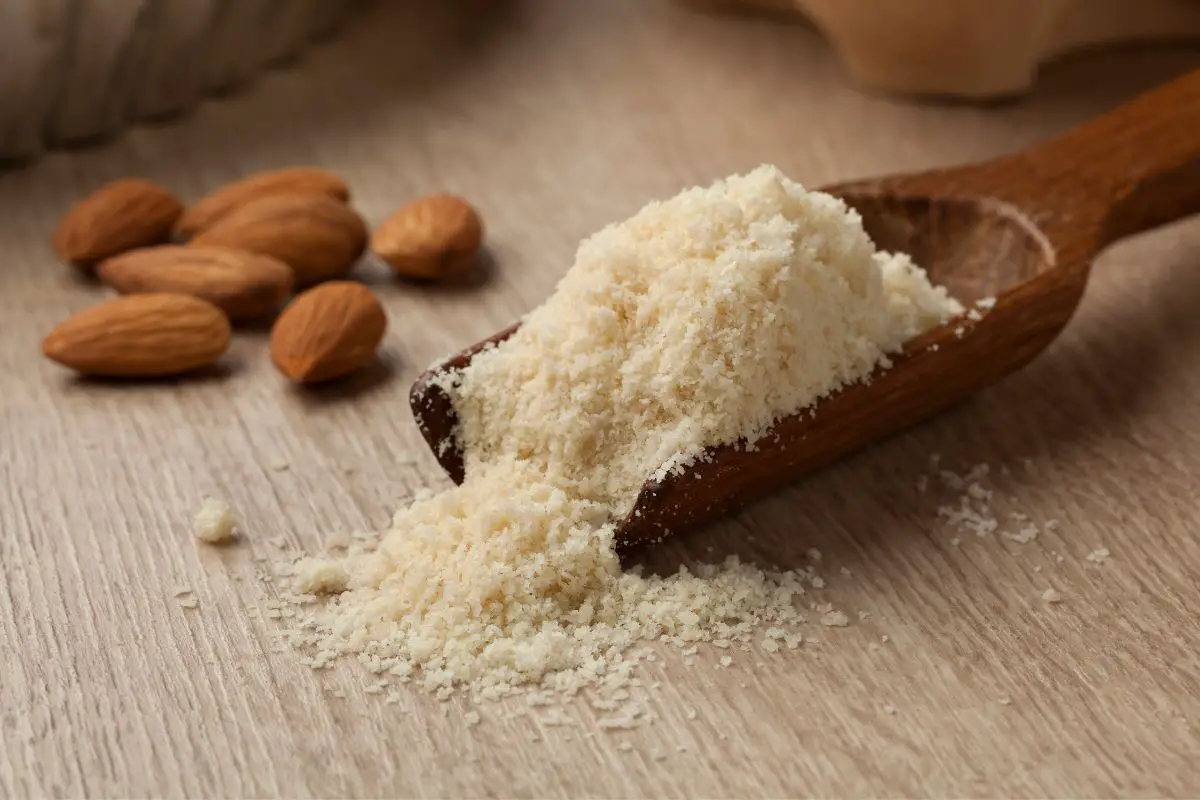
Almond meal, or almond flour as it is sometimes known, is an excellent low-carb substitute.
It’s most often used as a direct substitute for regular flour, but it also makes for fantastic low carbohydrate breadcrumbs.
In fact, there is no shortage of low-carb recipes that call for almond meal ‘breadcrumbs’.
Almond meal, made from ground almonds, contains just 12 grams of net carbs per cup, and has the added benefit of being great for your health in general.
It’s rich in fiber, packed full of many of the vitamins and minerals your body needs to function, and is gluten-free to boot.
Whether used in savory dishes or sweet ones, almond meal is one of the best keto-friendly breadcrumb alternatives around.
Coconut Flour
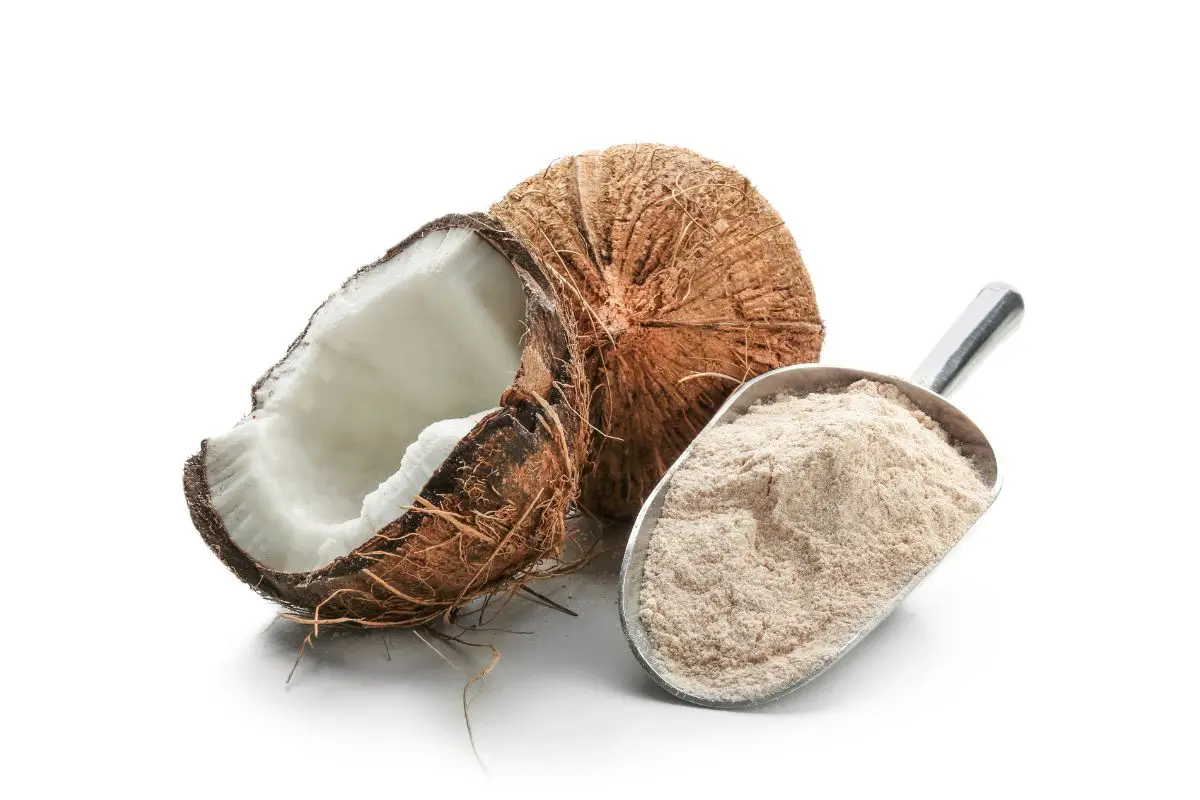
Another amazing substitute for breadcrumbs is coconut flour.
Again, it’s mostly used as a low-carb flour option- coconut bread is one of the most keto-friendly breads- but it can also be used to replace breadcrumbs!
It’s more carb-laden than almond meal, at 18 grams per quarter cup versus just six for almond meal, but still much less carb-laden than regular breadcrumbs.
It’s so simple, consisting only of ground-up coconut. Not only is coconut flour low in carbs, but it’s also super healthy too.
It contains healthy fats, which can help to maintain healthy cholesterol levels and improve cardiovascular health, and can also improve digestive health. It’s also high in both fiber and protein.
Pork Rinds
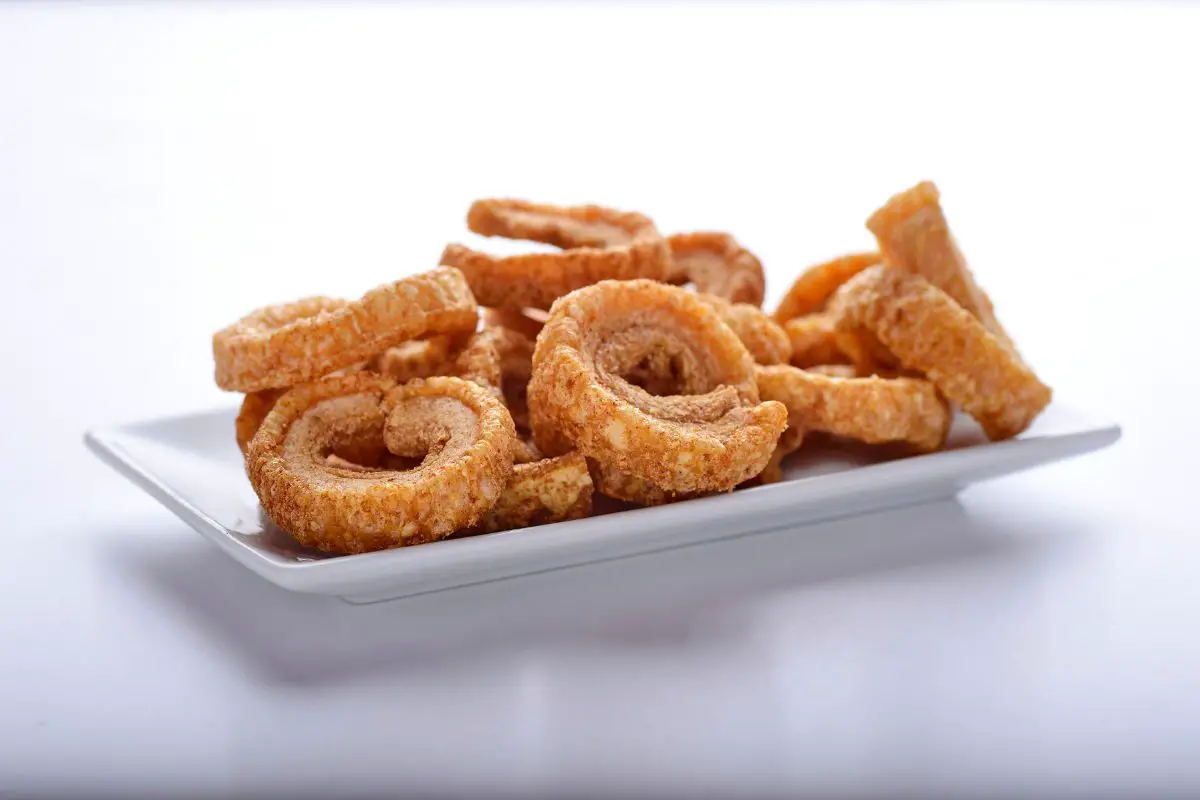
Pork rinds, made of fried pig skin, are a great keto-friendly breadcrumb alternative in savory dishes.
They offer much the same crunchy texture, whilst having absolutely zero net carbs, making them arguably the best panko or breadcrumb alternative for keto diet purists.
They’re a great source of protein too, but they are, however, quite high in fats, with 9 grams of fat in the typical one-ounce serving.
Our top tip for using pork rinds as a breadcrumb replacement is to buy them from a store or online, and then crush them into smaller pieces by placing them in a sealed plastic bag and grinding them up with a rolling pin.
Summary
Whilst panko breadcrumbs are lower in carbs than traditional breadcrumbs, they are still too high in carbohydrates to be considered truly keto-friendly.
Instead, why not try one of the keto-friendly alternatives listed here?

